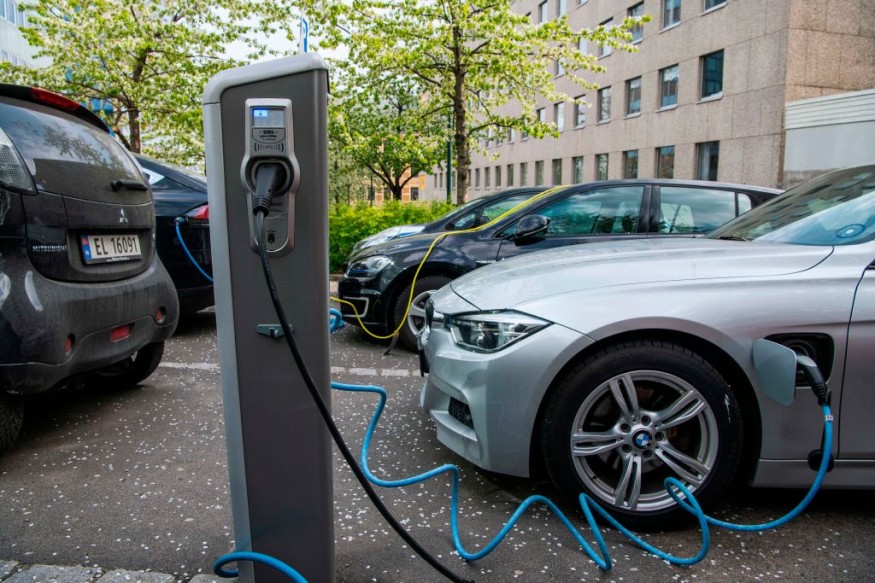Electric vehicles (EVs) are the new hope for a greener and cleaner future, improving air quality amidst the problems of climate change.
Electric Vehicles: Why Are They Important?

Air pollution and greenhouse gas emissions are pressing problems in society. Commercialization has brought significant changes in transportation.
Fossil fuel-powered vehicles have contributed to the problem due to harmful pollutants like carbon monoxide (CO), nitrogen oxide (NOx) and particulate matter (PM).
Andrew Kuttow, editor-in-chief of Lambocars, explained that said pollutants can exacerbate asthma. It can also lead to long-term impacts on human health, including pulmonary infections, heart disease and lung cancer.
As a result, the electric vehicle transition can benefit people and mitigate respiratory diseases. EVs don't produce harmful pollutants that can contribute to global warming.
"Electric vehicles (EVs) produce zero tailpipe emissions. It means they do not emit harmful pollutants like nitrogen oxides (NOx) and particulate matter (PM) that contribute to urban smog and respiratory diseases," Kuttow added.
Here are the five notorious health myths about EVs that you should know.
Myth 1: Electric Cars Cause Cancer

Electric cars don't cause cancer. In fact, it has been beneficial for human health, reducing the emergence of disease, pollution and other health risks.
"Long-term benefits of transitioning to electric mobility in urban areas include reduced respiratory diseases, improved cardiovascular health, and increased life expectancy due to cleaner air," Mike Davison, founder of Superbike Newbie, explained.
Davidson added that it could help lower the health costs of pollution-related illnesses. Cities can also benefit because it improves air quality. With EV's zero emissions, the risk of cancer is unlikely or very low.
For instance, the use of electric vehicles in Shenzhen, China, has helped to reduce the toxic pollutants from the local air. The city has managed to transition to vehicles of about 10,000 buses slowly.
Myth 2: Electric Car Batteries Are Dangerous to Your Health
Reports showed that the battery from EVs poses no significant risks to human health. The greenhouse gas emissions in EVs are lower than the gasoline-powered cars.
In Noslo, Orway, adopting electric cars has shaped the city's goal for a greener future. Reports showed that about 80 percent of new vehicles in the country are now electric. The reliable battery chargers for EVs have attracted most residents to transition.
"More than half of their new cars are electric now, thanks to government support like tax breaks and free charging. As a result, the city saw a 12% drop in NOx emissions from 2019 to 2020," Patryk Doornebos, owner of Car Triple, explained.
Furthermore, using electric vehicles can lead to improved quality of life, reduced noise pollution and fewer hospital admissions.
Even if the EVs are charged, it has a smaller carbon footprint. The production of EVs meets the environmental and safety standards, including the EV battery packs.
Meanwhile, the battery of EVs can stand long-distance travel with about 40 km a day. People wanting to buy an EV should also check with their suppliers.
Myth 3: Electric Cars Emit Harmful EMFs
The electric vehicles can also emit electromagnetic fields (EMF). Being energy-efficient vehicles, EVs don't pose significant health risks and cancer due to low EMF levels.
The harmful EMFs in EVs are considered a myth. The electric motors are environment-friendly, reducing greenhouse gas emissions that intensify climate change.
"The ICCT found that electric cars, even when accounting for electricity generation emissions, still emit less than half the amount of NOx and PM per kilometer compared to diesel vehicles," Kuttow said.
In the US, switching to electric vehicles can benefit many Americans. According to experts, it can likely prevent about 89,000 deaths in the country.
"Electric vehicles contribute to a reduction in pollutants (nitrogen oxides and particulate matter) which are predominant in emissions from traditional internal combustion engines," Liam Lucas, CEO of Off-Road Genius and jeep enthusiast, said.
Myth 4: Electric Cars Interfere With Pacemakers
Pacemakers refer to a device to help with the heart's normal rate. People with heart problems need to stabilize abnormal heart rhythms. According to reports, electric cars are considered safe for people with pacemakers.
Researchers studied the effects of high-powered chargers, electromagnetic interferences and EVs on people with pacemakers. About 130 patients were included in the study to observe for potential device malfunction.
According to the results, the researchers discovered no painful shocks and health risks. Experts explained that EVs and charging are safe for people with pacemakers.
Myth 5: Electric Cars Emit Toxic Fumes
EVs can combat the problems of air pollution by reducing harmful pollutants entering the air. However, people raised concerns about the potential toxic fumes from electric cars.
Burning EVs can produce noxious gases. However, the said case is extremely low. Reports showed that gas-powered vehicles can produce more emissions and fumes.
Furthermore, the fires in EVs are very rare. From 2010 to 2023, the EV FireSafe reported that about 0.0012% of EVS had cases of catching fire. Combustion engine fires are more common.
"Electric vehicles often have lower running and maintenance costs, making them a smart choice for the wallet as well as the planet. They are an effective way to reduce your personal pollution footprint and contribute to cleaner air in your community, Off-Road expert Lucas said.
EV transition is a win-win for the environment and human health. It is for the goal of a greener future for urban cities suffering from air pollution and the effects of climate change.
Related Article : Are EV Cars Better For the Environment? Can It Solve Toxic Air Pollution and Respiratory Problems?
For more similar stories, don't forget to follow Nature World News.
© 2026 NatureWorldNews.com All rights reserved. Do not reproduce without permission.





